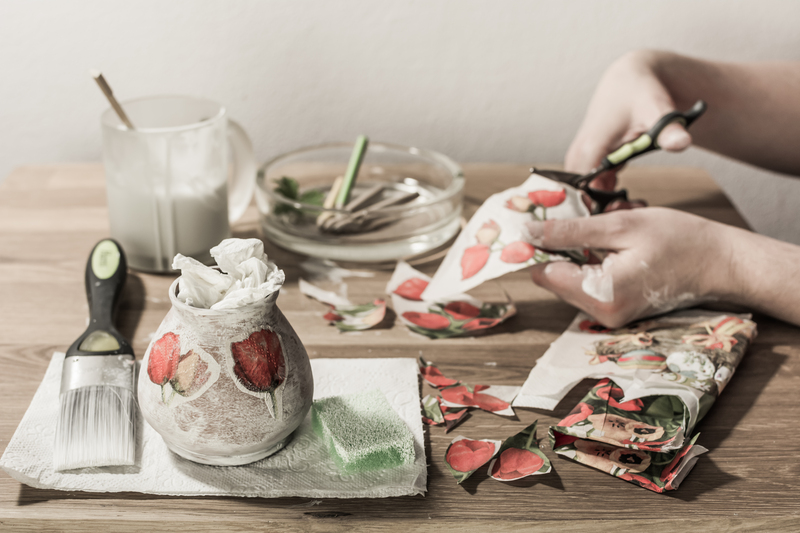Sustainable Strategies to Clear Out Kitchen Cookware
Are you tired of overflowing cabinets, mismatched lids, and rarely-used pans? Decluttering the kitchen can be daunting, but embracing sustainable strategies to clear out kitchen cookware is kinder to the planet--and your space! In this comprehensive guide, we'll explore eco-friendly cookware organization, rehoming, recycling, and donation tips, ensuring you make thoughtful, sustainable choices as you streamline your kitchen.

Why Sustainable Strategies Matter for Your Kitchen Cookware
Traditional decluttering often leads to considerable waste, with piles of unwanted kitchen items ending up in landfills. However, by implementing environmentally friendly ways to declutter kitchen cookware, you can minimize waste, help communities in need, and potentially earn back some value from your unwanted items.
- Minimize landfill waste: Most cookware can be recycled or reused rather than trashed.
- Support your community: Donating or gifting usable cookware directly benefits others.
- Boost mental clarity: A well-organized kitchen is more inviting and easier to use.
- Encourage mindful buying: Understanding what you use reduces unnecessary new purchases.
Before You Begin: Assess Your Cookware Inventory
Start with a careful inventory of all your kitchen cookware. Lay everything out on a clean, flat surface to see exactly what you own. This step is crucial for evaluating which items to keep, replace, recycle, or donate.
- Group similar items: Pots, pans, baking sheets, lids, specialty tools, and utensils.
- Check for damage: Discard anything that is broken beyond repair, rusted, or has compromised nonstick coatings.
- Identify duplicates: Keep the best quality or most versatile piece; set extras aside.
- Reflect on use: If you haven't used it in the past year, it's likely you won't in the future.
Tip: If you have sentimental cookware, consider repurposing it for storage or decor rather than actual use.
Sustainable Sorting: The Four-Box Method
An effective way to sort kitchen cookware sustainably is the Four-Box Method. Label four boxes:
- Keep
- Donate / Gift
- Recycle
- Repair / Upcycle
Carefully consider each piece and place it in the appropriate box. Resist the urge to just toss unused items in the trash!
Sustainable Ways to Rehome Unwanted Cookware
1. Donate to Local Charities and Nonprofits
Donation is a highly impactful strategy when clearing out kitchenware. Many local shelters, food banks, and nonprofit organizations accept gently-used cookware, aiding those setting up new homes or in crisis.
- Research local needs: Contact organizations to learn what types of cookware they accept.
- Clean items thoroughly: Make sure pots, pans, and utensils are free of food residue and stains.
- Bundle sets: Grouping matching lids and pots adds convenience for recipients.
Popular donation recipients include:
- Homeless shelters
- Refugee resettlement organizations
- Soup kitchens and food banks
- Thrift stores supporting community causes
2. Gift to Friends, Family, or Neighbors
You may be surprised by the number of people looking for specific cookware! Offer items via a group chat, community board, or Buy Nothing groups. This local redistribution keeps cookware in use and cuts down on shipping emissions.
3. Sell for Reuse
If your cookware is in excellent or designer condition, consider reselling through online marketplaces or consignment shops. Platforms like eBay, Facebook Marketplace, Craigslist, and Poshmark are popular for such transactions.
- Take clear, informative photos
- Include accurate brand and material details
- Specify condition (scratches, wear, working lids, etc.)
- Offer bundle discounts for sets
Eco-Friendly Recycling Solutions for Old Cookware
1. Metal Cookware Recycling
Most pots, pans, and some lids are made from metals like aluminum, stainless steel, or cast iron, which are widely recyclable but not always accepted in curbside bins. For sustainable cookware recycling strategies:
- Contact your local recycling center and inquire if they accept cookware.
- Remove any non-metal parts (plastic handles, glass lids) before recycling.
- If cookware has a nonstick coating, check for specific disposal guidelines, as some sites may not accept them.
- Drop off at scrap metal yards if appropriate; these facilities often take even heavily used or damaged items.
2. Specialty Cookware Components
Certain types--like glass lids, ceramic items, and coated pans--require special handling:
- Glass lids: Tempered glass usually isn't accepted in curbside recycling. Check with local glass recycling centers.
- Plastic handles: Detach and recycle if marked, otherwise dispose responsibly.
- Nonstick/coated pans: When Teflon is severely worn, most centers require trash disposal, but some companies offer take-back programs.
- Ceramic cookware: If not cracked, consider upcycling as planters or donate to art programs.
Tip: Some cookware manufacturers have recycling or return programs for their products. Check their websites.
Creative Upcycling and Repurposing Ideas
Instead of discarding old kitchenware, unleash your creativity with some upcycling:
- Planters and garden containers: Deep pots and colanders make quirky outdoor or indoor planters.
- Organizational bins: Old baking sheets can become desk or drawer organizers.
- Wall art: Arrange colorful pans or vintage utensils for a decorative display.
- Bird feeders: Transform an old ladle or saucepan into a unique bird feeder.
With a little imagination and DIY effort, you can keep worn or obsolete cookware out of the landfill while adding function to your living space.
How to Maintain a Sustainable Kitchen Cookware Collection
1. Mindful Buying Practices
Now that you've cleared out excess or unwanted cookware, ensure your kitchen remains clutter-free and sustainable:
- Prioritize quality over quantity: Invest in multi-purpose, durable cookware made from sustainable materials.
- Avoid unnecessary gadgets: Only purchase what you need and will use regularly.
- Research product lifespan: Read reviews and choose reputable brands.
- Consider secondhand: Check thrift stores, garage sales, or online listings before buying new.
2. Proper Storage and Organization
Proper organization helps prolong the life of your cookware and keeps your kitchen efficient:
- Install racks, shelves, or drawer dividers for easy access.
- Stack pots carefully to avoid scratching and denting.
- Keep lids organized using specialized racks.
- Store infrequently used items higher or further back, keeping daily essentials within reach.
3. Regular Maintenance and Cleaning
Caring for your cookware enhances longevity and sustainability:
- Gently clean cookware according to manufacturer guidelines--hand-wash when appropriate.
- Avoid abrasive scrubbers that damage coatings.
- Promptly dry pans to prevent rust, especially with cast iron.
- Periodically re-season cast iron and carbon steel cookware.

Frequently Asked Questions: Sustainable Cookware Decluttering
Can I recycle nonstick pans?
Most local recycling centers do not accept nonstick pans if the coating is flaking or damaged. However, some manufacturers and specialty scrap yards may accept them. Check with your municipal waste management for specific guidelines. If recycling is unavailable, try upcycling or donating if the pan is still usable.
Are there any companies that take back old cookware?
Yes! Several brands (such as Calphalon, GreenPan, and certain Le Creuset outlets) offer recycling, trade-in, or take-back programs. Visit the manufacturer's website or call customer service to check current options and requirements.
How should I dispose of broken glass lids?
Tempered glass is not typically accepted in household recycling bins. Safely wrap and label broken pieces for landfill disposal, or find a local glass recycling facility equipped to process cookware glass.
Can I give away single lids or mismatched pieces?
Absolutely. Many people lose or break lids. List these items individually online; you may help someone complete their set and extend the lifespan of both items!
Sustainable Strategies: A Summary
- Start with a full cookware inventory and thoughtful sorting.
- Choose donation, gifting, or resale over trashing whenever possible.
- Follow local guidelines for recycling metal cookware, glass, and nonstick items.
- Get creative with upcycling projects for truly worn cookware.
- Commit to mindful shopping and regular maintenance for future sustainability.
By choosing sustainable strategies to clear out kitchen cookware, you not only declutter your home but also contribute positively to your community and environment. Start today--the planet (and your kitchen counters) will thank you!
